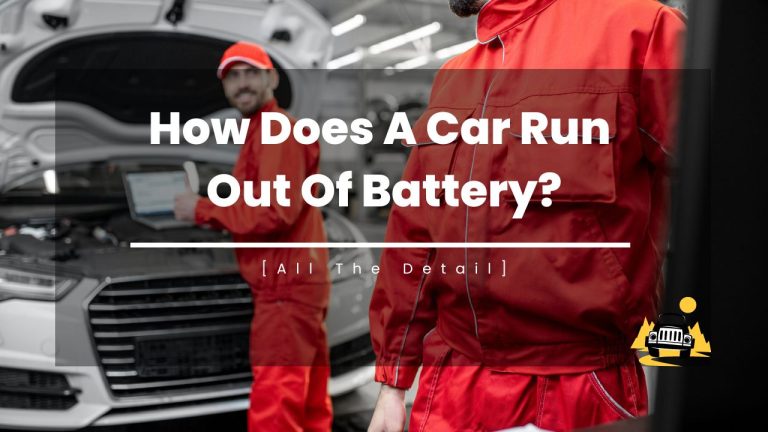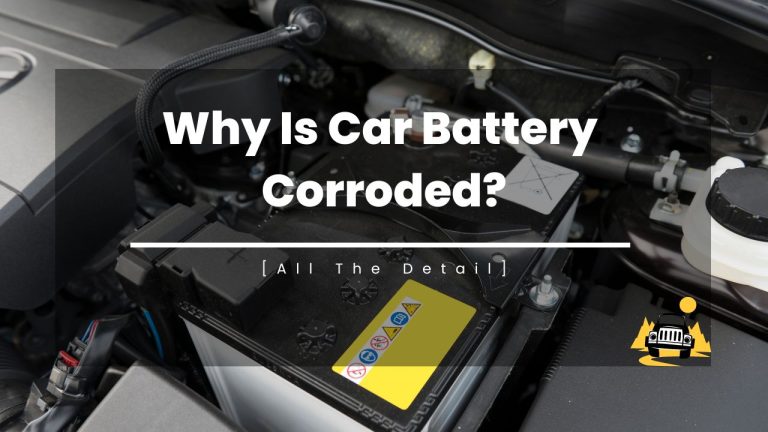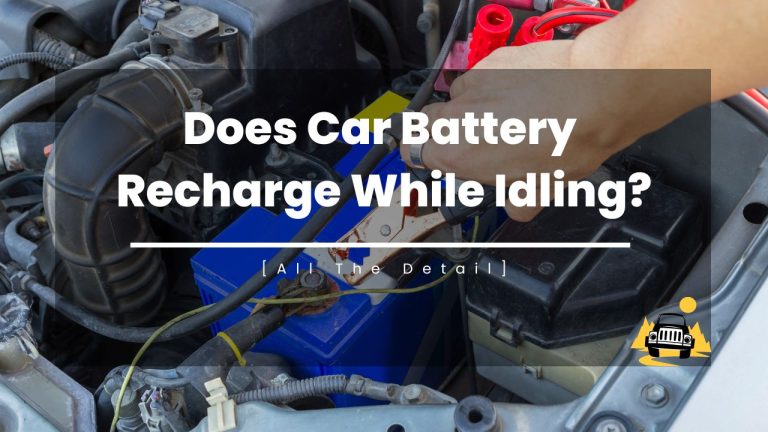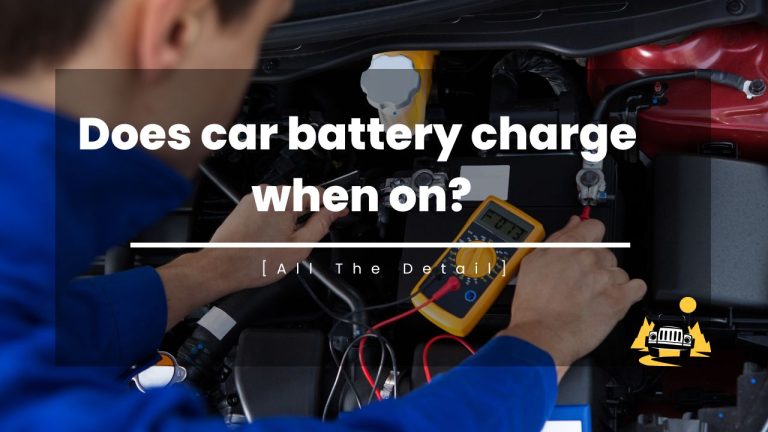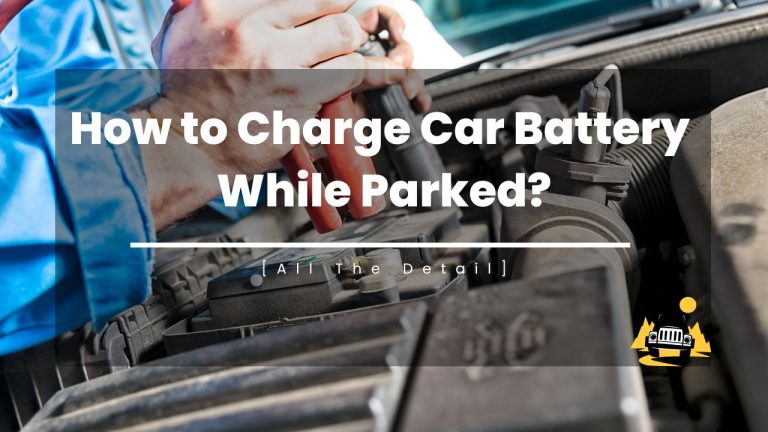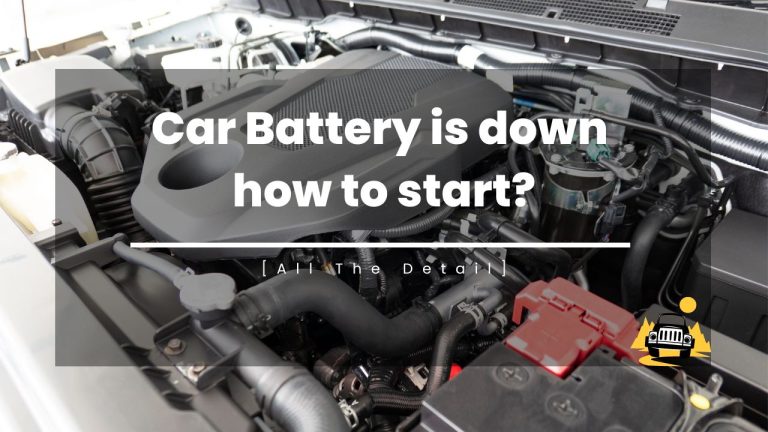What Causes Car Battery Corrosion On Positive Terminal?
What causes car battery corrosion on positive terminal? There are multiple reasons for battery terminal corrosion on its own. So how will you understand the reasons behind the positive terminal corrosion?
Well, it is as simple as a piece of cake because, in a short and crisp answer, we’d say that corrosion on the positive terminal is often because of overcharging.
But that’s just a simple answer and if you want to see a detailed and well-explained answer, you will have to learn about some things before coming to the point. So please read this complete article to get to know all about battery terminal corrosion.
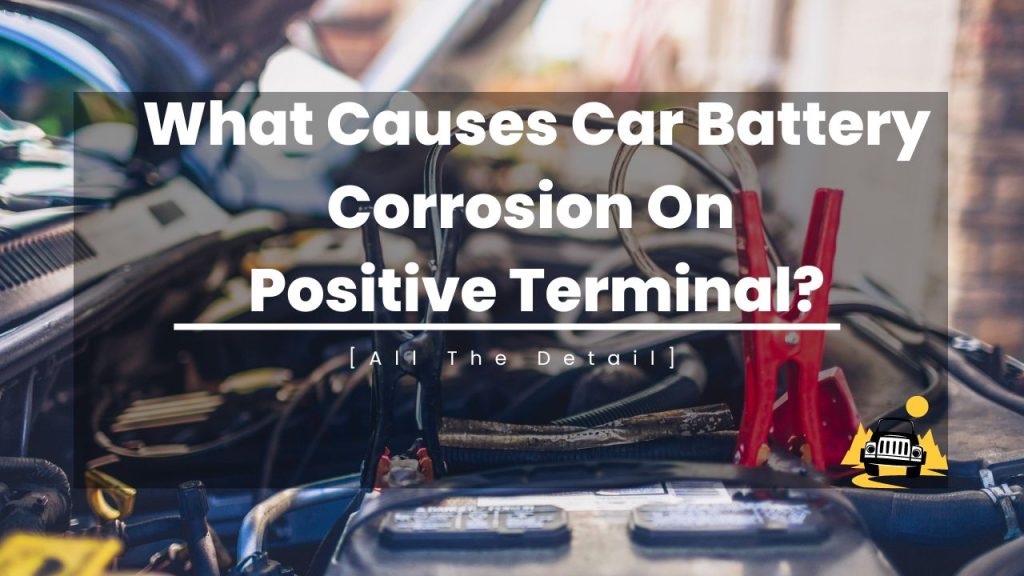
What Causes Car Battery Corrosion On Positive Terminal?
The battery corrosion on its positive terminal is mainly because of overcharging which mostly happens when you keep driving for too long distances. But what actually is corrosion and why only on the positive terminal when it’s there and not the other one?
And why on the negative one or on both terminals at the same time? All these questions are important but first, let’s understand what corrosion is.
What is corrosion?
Corrosion is the whitish, bluish, or sometimes greenish substance on the battery terminals of your car that appears because of multiple reasons. This substance on your car battery terminals, cables, or posts is either lead sulfate or dry copper sulfate.
In the beginning, it is always whitish and only turns blue when it is wet or exposed to water. This reaction makes the bluish substance which is the hydrous copper sulfate which means now moisture is joined in.
Corrosion is basically a not-so-good or bad conductor of electricity, to simply. So when it appears on the battery terminals, the resistance increases, and eventually the circuit breaks or weakens. It can also damage your car battery when the circuit is letting the current pass sometimes and sometimes not. Even when the current is passing, the amount of the current is not sufficient to start the engine.
What causes car battery corrosion on the positive terminal?
Car battery corrosion is caused by the gasses that the sulfuric acid of your battery releases like hydrogen gas. When this hydrogen gas reacts with the atmosphere on the terminals, it becomes corrosive and the whitish substance starts to appear on the terminals.
After that, when the corrosion is exposed to moisture, it starts to change its state and color and either becomes hydrous copper sulfate or lead sulfate. There are two major elements that accelerate the corrosion of the terminals that are salt and moisture. But these two elements do not produce corrosion on their own alone.
Now when it comes to corrosion produced on either terminal of the battery, it is certainly because of specific reasons. If corrosion is produced on the positive terminal of the battery, then this is because of overcharging problem.
Overcharging is done when you do not use your car battery as much as you keep charging it. Some people keep emergency car battery chargers with them and keep charging their car batteries just to be sure. They don’t even bother to check whether the battery needs to be charged or not.
When corrosion is appearing on the negative terminal of the battery, it is because of undercharging. Undercharging happens when you don’t drive your car for a long tour but just the small ones.
A study proves that a car battery recovers the energy that it used to ignite the engine from at least a 20-minute continuous drive of your car, depending upon the size of your battery. So you have to take your car on long routes just to make sure the battery is systematically getting charged up and all.
Otherwise, keep your car’s battery power-consuming items turned off if you can’t go for a long drive.
Another reason for undercharging is when you keep your battery-powered utilities of the car turned on even when the engine is off. This drains your battery too fast and even has effects on your battery health. So you need to make sure that all the lights in your car, as well as the radio and all other parts like the AC, are turned off properly.
Conclusion
What causes car battery corrosion on positive terminal? This is not hidden from anybody out there after you’ve read this article. But because corrosion is too bad for your car’s electric system and the overall wiring and battery health of your car, so you need to rub it off ASAP.
Once corrosion occurs on your car battery terminals, the ignition system will start to break down or weaken every day. The difference between positive terminal corrosion and negative terminal corrosion is very important to know for a driver. It’s because they will have to take precautionary measures if their car’s ignition system starts failing quite often.
We hope that you liked this article. If you did, please make sure to share it with others and keep visiting this website for more regular updates. We like to engage with our regular visitors so if you have any questions or suggestions, please write to us in the comment section below. We’ll be glad to hear from you.
FAQs – What causes car battery corrosion on the positive terminal?
Why does my positive battery terminal keep corroding?
As this is very deeply explained in today’s topic so we don’t think you still have this question in mind. Corrosion on the positive terminal of your car battery occurs when the battery is often overcharged.
Now coming to your question, if you have cleaned that corrosion but still after a few days corrosion occurs, then it is because you’re not taking good care of your car battery. That means just cleaning the terminals is not enough, you have to not overcharge the battery or use it frequently if it keeps overcharging when you drive the car.
How do you prevent positive terminal corrosion?
Prevention of corrosion is very easy as you just have to apply the battery terminal grease on your car battery terminals. Once the grease or AMSOIL Heavy-Duty metal protector is applied on the terminals, it will not corrode till the protection lasts.
But still, you need to make sure that you don’t do what you used to do with your battery that caused the corrosion in the first place.
Does corrosion on a battery terminal mean the battery is bad?
Well, the battery and its terminals are the electrical parts and every electrical component in a car is prone to be corroded. So when you see that your car battery terminals are corroded, that doesn’t necessarily mean that your battery is bad.
It’s just that these are made of metals and all metal parts, at some point in their lifespan, have to wear out. So this is what happens with your car battery too.
Can an alternator cause battery corrosion?
Alternators don’t usually fit with most people’s driving habits. That’s why they can’t do anything to support the battery power system.
All the alternators, if have been old enough, will keep making the battery release the hydrogen gas, and this gas will react with the outer environment.
This reaction will keep producing corrosion on the terminal surface and moisture and salt will keep accelerating the process. But this is just the characteristic of a faulty alternator, otherwise, a new alternator or one in good condition will not do that at all.
Can battery corrosion drain a battery?
Yes, battery corrosion can cause the battery to drain more rapidly. That’s why sometimes we see that someone’s car broke on the road that’s because of corrosion probably. Corrosion is also the culprit for not letting your car battery gets fully charged.
Sometimes, the bad alternator produces corrosion but sometimes it happens the other way around. Corrosion can also make a good alternator a bad alternator.
